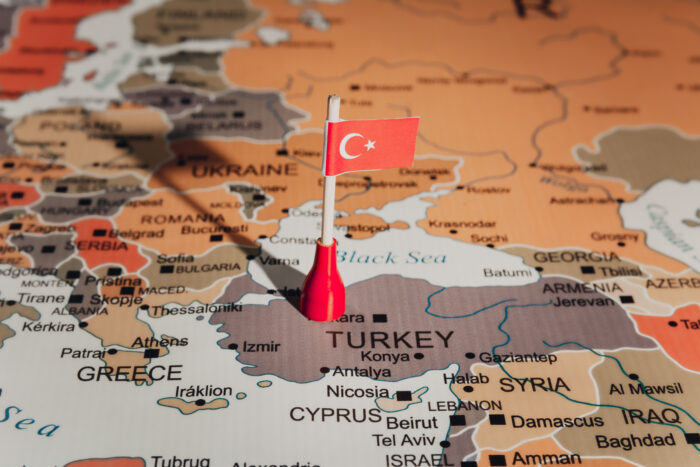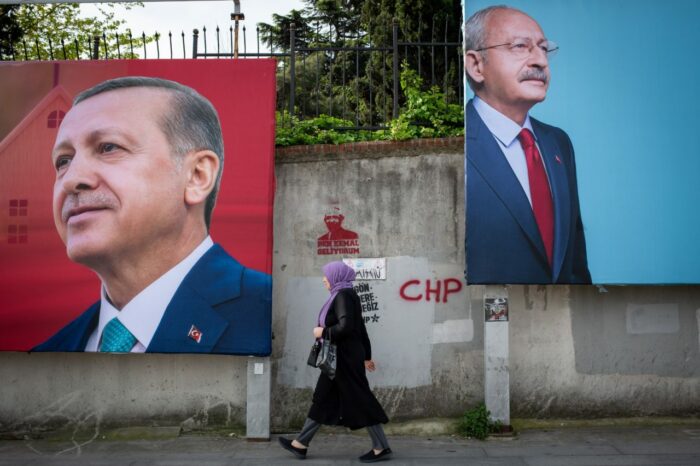The Progressive Post
The new pink tide in Latin America: Can they move further?


After some prior success and many limitations, left-wing governments are back in Latin America. Whether or not they can move further in fighting inequality depends on the policy space to implement a redistributive agenda. Unfortunately, the social and geopolitical conditions are now less favourable than before, and leftist governments might face increasing obstacles ahead.
After being regarded as ‘villains’ by the military regime during the 1970s and 1980s, the left resurged in much of Latin America following Hugo Chavez’s rise to power in 1998 in Venezuela. Ricardo Lagos in Chile (2000), Luiz Inácio Lula da Silva in Brazil (2002), Nestor Kirchner in Argentina (2003), Tabaré Vázquez in Uruguay (2004), Evo Morales in Bolivia (2005), Rafael Correa in Ecuador (2006), Daniel Ortega in Nicaragua (2006), Fernando Lugo in Paraguay (2008) and Maurício Funes in El Salvador (2009) brought about the so-called Marea Rosa (‘pink tide’) that swept the region. Except for Fernando Lugo in Paraguay, all of them managed to be re-elected, or for their party to hold power for more than one term by supporting their preferred successors.
By 2010, the pink tide started to water down with the election of Sebastian Piñera in Chile. And after Mauricio Macri’s election in Argentina (2015) and the impeachment of Dilma Rousseff in Brazil (2016), many observers proclaimed the end of the Latin American left. The election of Lenin Moreno in Ecuador (2017), Jair Bolsonaro in Brazil (2018), Lacalle Pou in Uruguay (2019) and the political coup in Bolivia (2019) led to ‘the rise of the new right’ in the region when market-oriented governments came to office with a mandate for fiscal adjustments and began the dismantling of welfare policies.
Before the Covid-19 pandemic hit the region, there was growing popular dissatisfaction with the population’s declining economic and social conditions in the face of the unaccomplished promises of liberal reforms. The 2019 protests in Chile, which led to the rewriting of the constitution, have shown this demand for a new social agenda. The rapid impoverishment caused by the pandemic, which affected the mass of informal workers, increased popular discontent with incumbent governments.
Thus, after a political turn to right-wing governments, a new wave of left-leaning governments came to office in Mexico (2018), Argentina (2019), Bolivia (2020), Peru (2021), Honduras (2021), Chile (2022), Colombia (2022) and finally Brazil (2023). In Venezuela and Nicaragua, meanwhile, there remain the shadows of the first pink tide under the authoritarian regime of Nicolás Maduro and Daniel Ortega respectively. Although centre-right governments still control Ecuador, Uruguay and Paraguay, Latin America revives a ‘new pink tide’.
Yet, how far these newly elected left-wing governments might go depends on the constraint private markets can exert over their policy space. Non-elected agents as business and financial markets highly influence the region’s dynamics through collective political efforts to influence policy and through more indirect channels like reduced investments and capital flight threats.
In the first two decades of the century, most Latin American countries significantly advanced social justice through increased social spending with cash transfer programmes, increased coverage of welfare policies and the improvement of the labour market conditions (real increases in the minimum wage). All these changes were possible due to the commodity boom of the 2000s that increased the capital flow to the region, enlarging the policy space of the social-driven governments. When capital is abundant and the economy performs well, left-wing leaders suffer less under the constraints imposed by private markets.
As a result, between 2000 and 2015, income inequality (measured by the Gini index) fell by about 13 per cent in the region. In Chile, after an impressive reduction of inequality during Lago’s and Bachelet’s presidencies, the Gini index stopped falling and kept relatively constant until the current period. Brazil, one of the most unequal countries on the planet, also experienced a significant improvement during the governments of Lula da Silva’s and Dilma Rousseff’s Workers’ Party, followed by an increase in inequality after 2016. The same reversion is observed in Uruguay after 2019, in Argentina after 2014 and in Ecuador since 2018.
Three aspects must be highlighted to evaluate the prospect of the new pink tide: the first is the increasing institutional instability in the region, particularly with authoritarianism gaining traction in many countries. Given the region’s historical heritage, the growing presence of the military in high-level civil positions, such as in Brazil, Colombia, Uruguay and El Salvador, brought severe concerns regarding the stability of democracy. There was plenty of evidence of attacks against democratic institutions and human rights. This raised red flags about institutional instability because, unlike their predecessors, the left-wing presidents that came to office during this new pink tide dismissed electoral coalitions with conservatives. It is still not clear how these new presidents will govern under conditions of legislative minorities, polarised politics and possible radicalisation.
Second is the uncertain economic conditions with the high volatility of oil prices and commodities. Although commodity prices began rising again in 2021 due to the initial recovery of the US, the EU and China after the pandemic and peaked in June 2022 due to the war in Ukraine, there has been a strong downward trend in prices since then. In the West, the US faces growing national debt while the Eurozone suffers from high inflation. The Chinese prospects are not so promising either. Despite a recovery of 4.5 per cent in the first quarter of 2023, compared to the same quarter of 2022, the country’s economy has been disappointing since the second trimester. With all these uncertainties, it is unlikely that Latin American governments will benefit from a capital bonanza any time soon.
Third is the geopolitical scenario with the rising polarisation between the United States, on the one hand, and Russia and China on the other. In this new geopolitical order, the United States may not be complacent to left-wing movements and parties with the spirit of ‘Anti-Americanism’. This new scenario might reduce the policy space for ‘post-hegemonic’ regional arrangements.
As observed during the first pink tide, one might expect a kaleidoscope of economic and political models across the region. Once again, the defining feature of the policy space at the disposal of left-wing governments remains largely exogenous to policymaking: it is deeply rooted in the conditions of external markets. The persistence of this condition signals the inability of Latin American countries to reduce their vulnerability by sophisticating their productive structure and reducing dependence on commodity exports.
Unlike the first pink tide, however, the social and geopolitical conditions are less favourable for the left. So far, left-wing leaders have not managed to build stable coalitions and gain legislative majorities. On the other hand, the conservatives are highly activated by a moralist and ‘anti-communist’ platform against indigenous, feminist and environmental movements. Therefore, it can be anticipated that the second pink tide will be much more unstable and achieve much more modest results than the previous one.
Photocredits: www.shutterstock/DonatasDabravolskas




